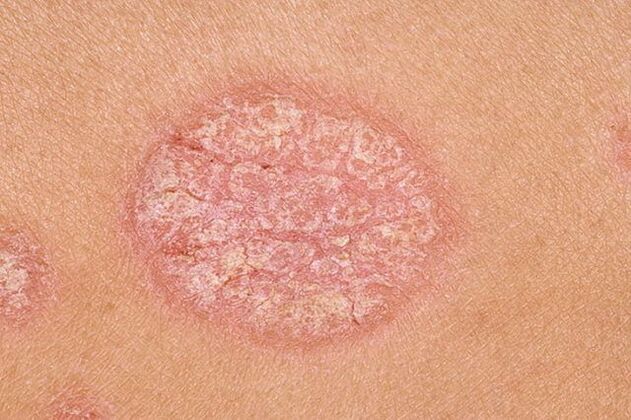Psoriasis in itself is not a dangerous disease, but it brings a lot of physical and psychological discomfort. Meanwhile, it is still almost impossible to get rid of completely. Therefore, the only effective measure is prevention and rapid relief of symptoms.
However, if a worsening of psoriasis suddenly appears, what should be done in such cases and what medications to use? The answer to this question is chosen individually for each patient, however, there are general rules of conduct.
Causes of deterioration and factors affecting the occurrence of relapse

According to statistics, relapses of the disease occur less often in the warm season. Typically, the manifestation of the main symptoms is observed in autumn and winter, during the growing period of cold weather. This is due to the following factors:
- Sunlight in spring and summer has a positive effect on the condition of the skin, preventing the active progression of psoriasis. This is where the factor of treating the skin with ultraviolet rays and saturating the body with vitamin D comes into play. In winter, there is no light.
- The activation of viral and bacterial infections during the cold season negatively affects the state of the immune system, so it directly affects the skin.
At the same time, only dosed exposure to ultraviolet radiation from the skin can have a positive effect on it. Too much light can make psoriasis worse.
In addition, the following prerequisites and factors for the development of deterioration are identified:
- Acute and sudden stress, progression of depression;
- Excessive physical activity;
- Prolonged and uncontrolled use of drugs;
- Climate change;
- Infection with bacterial and viral infections of any nature;
- Skin damage (mechanical bites, as well as from insects);
- Non-compliance with the diet;
- Refusal to take special medications;
- Violation of metabolic processes;
- Intoxication of the body (alcohol, infectious, poisoning with toxic substances).

Thus, as can be seen from the list, the worsening of psoriasis does not occur without obvious reasons and prerequisites are necessary for it.
Signs of irritation
Symptoms of psoriasis are almost always present in the patient to one degree or another. However, a severe exacerbation of psoriasis usually has its own characteristic signs:
- A rapid increase in the number and volume of reddish spots all over the body (localization may depend on the type of psoriasis);
- The appearance of a terminal film on the surface of the affected skin;
- The appearance of unbearable itching and burning (in extreme cases - pain syndrome);
- Feeling of dryness and tightness, discomfort;
- Intensification of rashes and an increase in their area due to mechanical damage to the skin in the affected areas;
- Peeling, the formation of a characteristic stearine stain.

At the same time, a patient suffering from psoriasis may be irritable and sudden mood swings are possible. On the other hand, increased stress significantly worsens the condition and appearance of the skin. With severe lesions, the accumulation of exudate and pus is possible.
Aggravation during pregnancy
With proper treatment, psoriasis in women can be relatively mild. However, during pregnancy, hormonal levels and vitamin D levels change dramatically, which can cause the dermatosis to enter a regressive phase. In this case, the symptoms of deterioration are mixed in their manifestations, reminiscent of intoxication of the body. In this case, the following phenomena occur:
- Painful redness and much itching on the back, head, face in the groin area;
- Nausea, often accompanied by vomiting without relief;
- Loss or decrease of appetite;
- Anxiety;
- Sleep disorder;
- Increased body temperature.
An increase in cortisol levels can also be a trigger for regression. Moreover, the hormone can be released both before an exacerbation of psoriasis occurs and after, maintaining all the unpleasant symptoms of the disease. Therefore, treatment should also aim to reduce cortisol levels in pregnant women.
How long can the regression phase last?
With psoriasis, the nature of the course of the disease depends mainly on the patient himself and on how accurately he follows the instructions and recommendations of the attending physician. On average, psoriasis flare-ups occur five to ten times a year. In this case, the minimum duration of the regression period is at least two weeks.
An increase in the symptoms of dermatosis can also occur for reasons beyond the patient's control. However, the number of exacerbations can be significantly reduced if you follow all the recommendations of your doctor.
How to stop the progression of the disease during exacerbation?
First of all, when the symptoms of psoriasis of any type increase, it is important to determine what caused the regression. However, it is not always possible to perform this action yourself, so it is recommended to seek the help of a specialist. In the future, it is necessary to restore the previous correct regimen of the patient.
Drug treatment
Taking the necessary medications, as well as the use of drugs for external use, is an integral part of the treatment of psoriasis exacerbation. For this, the following groups of drugs are used:
- sedative;
- Non-steroidal anti-inflammatory drugs;
- Hormonal medications (in advanced cases);
- Multivitamin complexes containing vitamins B and D;
- Immunomodulators;
- Antihistamines.
Creams, ointments and lotions, as well as auxiliary cosmetics, are used to relieve visible symptoms and improve the condition of the skin. Such products dry the affected areas, help to accelerate the regeneration of the skin and reduce the skin.
Physiotherapy
This method of eliminating the worsening of psoriasis is used in almost all cases. This allows you to greatly increase the effect of drugs and accelerate the tissue healing process, delaying the occurrence of the next regressive period.
Some of the most effective physical therapy methods include:
- Ultrasound exposure;
- Magnetotherapy;
- PUVA;
- Phototherapy;
- Electrophoresis.
Methods are selected in the absence of contraindications in each individual case. In this case, only one influence method can be selected, or a whole combination. Physiotherapy methods are usually combined with mandatory medication and are not used as an alternative to other methods.
The right diet
Very often, regression in the course of dermatosis occurs as a result of eating unhealthy dishes and products. However, even consuming only the "right" products does not always guarantee a reduction in risks, and in such cases, patients again turn to the doctor with the question of what to do during an exacerbation of psoriasis, if the cause cannot be identified. As a rule, such patients simply forget that foods with high levels of allergens should also be excluded from the daily menu.
Thus, the menu should not contain:
- Chicken eggs;
- Citrus fruits and honey;
- Whole milk (especially high-fat milk);
- Red fruits and vegetables (especially without prior heat treatment);
- Fatty and spicy additives and sauces;
- Mushrooms;
- Fast food and semi-finished products;
- Fried, fatty, salty, smoked marinades.
Overeating and late meals are not allowed. Desserts and high-carbohydrate dishes (based on simple carbohydrates) are completely excluded from the diet. Non-carb sweeteners are allowed. Along with this, it is also necessary to stop smoking and drinking alcohol in any quantity.
Relief of heaviness with fasting
Fasting as a method of treating diseases has not been fully studied at the moment, however, in eliminating the symptoms of psoriasis, it shows the best results both in a hospital environment and at home. To prevent and eliminate the regression of dermatosis, a six-to-one scheme is effective, that is, fasting once a week. In this case, it is not necessary to give up food completely, fasting days are enough.
In this case, the following methods are possible:
- Consume only clean water during the day;
- Consumption of only one product (fruits or vegetables, dairy products).
Thus, the load on the digestive system will be removed, the body will be able to recover and regenerate, and hormone levels will be restored. Fasting days also help strengthen the immune system.
Effective products for external use
Doctors easily answer the question of how to quickly relieve an exacerbation of psoriasis, since a solution to this problem has already been found. In this case, it is better to use non-steroidal ointments against inflammatory processes. The course of treatment in this case will vary from three days to a week, but it is recommended to consult a doctor before use.
Among the most effective anti-inflammatory drugs are:
- Salicylic ointment. The product perfectly eliminates inflammatory processes, kills pathogenic bacteria, softens the skin, preventing its dehydration and accelerates regeneration processes. The ointment is suitable for daily use even with extensive lesions.
- Tar-based ointments and creams. Tar itself has anti-inflammatory and bactericidal properties, helps to eliminate and prevent secondary infections. Ointments based on it also improve the general condition of the skin and accelerate its healing.
- Zinc and salicylic-zinc ointments. They have a drying and healing effect, prevent the appearance of new rashes and destroy pathogenic microbes. Pastes should be used with caution in patients prone to allergic reactions.
A group of medicines should be prescribed only by the attending physician. As a rule, it is compiled for the entire course and can be used from time to time during exacerbations.
Relief of scalp psoriasis symptoms
A group of measures to reduce the symptoms of psoriasis of the head differs slightly from the methods for eliminating the regression of open areas of the body. However, in this case, it is also recommended to use cosmetics for special care, in particular shampoo:
- The drug prevents the development of secondary fungal infections, eliminates peeling and itching of the skin and regulates sebum secretion.
- The drug allows you to quickly get rid of itching and redness, reduces pain and irritation and heals the skin.
- The shampoo is based on thermal water, as well as lactic and salicylic acid. It effectively removes excess fat, preventing its accumulation, eliminates slippage and kills pathogenic bacteria.
- The product is based on extracts of medicinal plants and birch tar. The shampoo accelerates tissue regeneration processes and regulates the formation of new skin cells. It is one of the safest on the list.
- The shampoo contains coal tar, known for its antibacterial properties. The product eliminates pink spots from the scalp and prevents their reappearance.
Each shampoo has its own contraindications and limitations. As a rule, each product presented in the list can be used one to three times a week. It is recommended to wash your hair every day only with care shampoo.
CONCLUSION
When a patient is diagnosed with psoriasis, treatment for exacerbation is selected on an individual basis.However, for any type of dermatosis, therapy includes medications for external and internal use, as well as a specialized diet. It is possible to prevent the occurrence of deterioration by strictly following all the recommendations of the attending physician.
FAQ
What methods are effective for relieving the symptoms of psoriasis during an exacerbation?
During a psoriasis flare, topical medications such as corticosteroid creams or ointments and antipsoriatic drugs such as methotrexate or cyclosporine are effective methods of relieving symptoms. It's also important to take good care of your skin, including regular moisturizing and avoiding irritants.
How long can a psoriasis flare last and how often can it recur?
The duration and frequency of psoriasis exacerbations may vary depending on the individual characteristics of the patient. An aggravation can last from several weeks to several months. The frequency of flare-ups can vary for each patient - for some they may occur several times a year, while for others they occur less often.
What factors can provoke an exacerbation of psoriasis?
Psoriasis flare-ups can be triggered by a number of factors, such as stress, infections, skin trauma, weather changes, certain medications or even certain foods. It's important to pay attention to your individual triggers and try to avoid them to minimize the risk of flare-ups.
Useful tips
Tip #1
Consult a dermatologist for professional advice and appropriate treatment. Only a specialist will be able to determine the degree of deterioration and choose effective drugs and procedures.
Tip #2
Stick to a diet that excludes foods that cause psoriasis, such as spicy and fatty foods, alcohol, citrus fruits and chocolate. Choose foods rich in omega-3 fatty acids, vitamins and antioxidants, such as fish, nuts, olive oil, fruits and vegetables.























